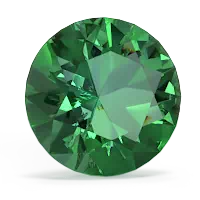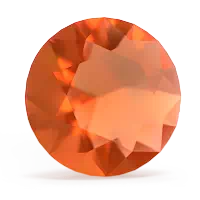

The gemstone is the star in these elegant Lab Emerald solitaire pendants. The birthstone of May, an emerald ring symbolizes the eternally returning spring. The velvety green color of emerald is a perfect match for spring and summer fashions. This birthstone of October embodies the orange and red colors of a warming fire. The fiery sparkle of this gem makes a fire opal ring become the center of conversation